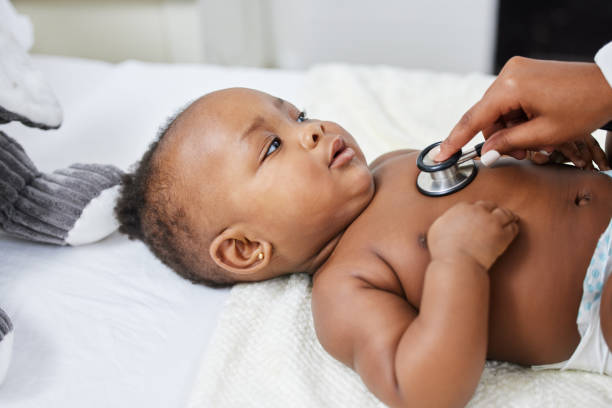By Morgan Nwanguma
A new malaria drug specifically designed for the youngest babies is expected to be introduced in several African countries within weeks.
Until now, there have been no approved malaria treatments tailored for infants. Instead, babies have been treated with versions intended for older children—a practice that carries the risk of overdose, as infants’ bodies process medications differently due to their developing liver function.
In 2023, malaria was linked to approximately 597,000 deaths, according to the most recent data. Nearly all of these occurred in Africa, and around 75% involved children under the age of five.
Although malaria treatments for children have existed, none had been formulated for babies weighing less than 4.5kg (about 10 pounds)—leaving a critical treatment gap. Using higher-dose medications meant for older children has posed serious safety risks for these vulnerable infants.
Now, a new drug developed by Novartis has received approval from Swiss regulatory authorities. It is expected to be deployed soon in countries most affected by malaria. Novartis plans to offer the medicine on a largely not-for-profit basis.
“This is a significant step forward in protecting the smallest and most vulnerable,” said Novartis CEO Vas Narasimhan..
“For more than three decades, we have stayed the course in the fight against malaria, working relentlessly to deliver scientific breakthroughs where they are needed most.
“Together with our partners, we are proud to have gone further to develop the first clinically proven malaria treatment for newborns and young babies, ensuring even the smallest and most vulnerable can finally receive the care they deserve.”
The drug, known as Coartem Baby—or Riamet Baby in some countries—was developed by Novartis in partnership with the Medicines for Malaria Venture (MMV), a Swiss-based non-profit organization initially supported by the British, Swiss, and Dutch governments, along with the World Bank and the Rockefeller Foundation.
Eight African countries participated in the drug’s evaluation and clinical trials and are expected to be among the first to receive it.
Martin Fitchet, CEO of MMV, described the development as another crucial milestone in the fight to reduce the devastating impact of malaria.
“Malaria is one of the world’s deadliest diseases, particularly among children. But with the right resources and focus, it can be eliminated.
“The approval of Coartem Baby provides a necessary medicine with an optimised dose to treat an otherwise neglected group of patients and offers a valuable addition to the antimalarial toolbox.”
Dr. Marvelle Brown, Associate Professor at the University of Hertfordshire’s School of Health, Medicine and Life Sciences, describes the development as a major breakthrough in the effort to save the lives of babies and young children.
“The death rate for malarial infections, particularly in sub-Saharan Africa is extremely high – over 76% of deaths occur in children under five years old.
“Increase in death from malaria is further compounded in babies born with sickle cell disease, primarily due to a weak immune system.
“From a public health perspective, Novartis making this not-for-profit can help with reducing inequality in access to healthcare.”





